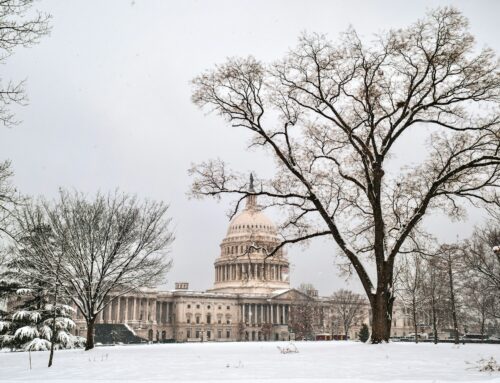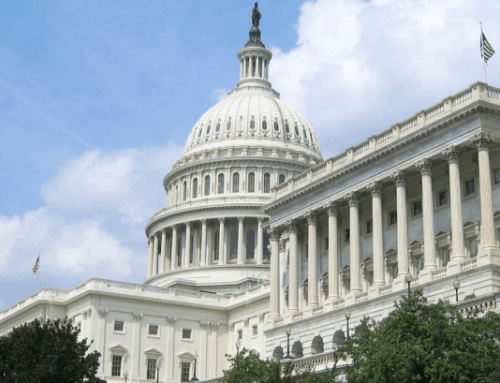Budgeting is hard. Building a responsible budget for a $7 trillion federal government is even harder if you refuse to follow the rules. In an era where norms and long-standing procedures are under siege, the federal budget process hasn’t been spared. But if taxpayers want a fiscally responsible government, they must insist lawmakers follow the rules.
One of the fiscal headlines this week was the Congressional Budget Office’s (CBO) report that the President’s budget reconciliation package will add $2.4 trillion to the national debt. While the bill includes $1.3 trillion in net spending reductions, it also slashes revenue by $3.7 trillion through tax cuts—leaving a net $2.4 trillion increase in the national debt. Throw in the $550 billion it will cost to service that debt, and you’re looking at a $3 trillion price tag.
Technically, the bill complies with the House’s Budget Resolution, which allows up to $2.5 trillion in new deficits and conveniently doesn’t count the costs of interest payments. But just because it’s allowed doesn’t mean it’s defensible.
In fact, it’s embarrassing. Lawmakers taking heat for the One Big Beautiful Bill’s burgeoning price tag have responded by spinning their own version of reality. The administration and its boosters tout projected spending reductions while ignoring the revenue lost to tax breaks. They insist that extending expiring tax cuts doesn’t count as a real cost (it does). They peddle the debunked claim that the tax cuts will pay for themselves through explosive economic growth. Some, like Larry Kudlow who served as Director of the Economic Council in President Trump’s first administration, advocate ignoring or even abolishing the CBO. All of it stems from a refusal to accept the facts as laid out under established budgeting rules.
The Senate’s creative approach to holding down the bill’s cost is to break budget scoring rules and ignore them. Many of the individual tax provisions from the Tax Cuts and Jobs Act of 2017 are scheduled to expire at the end of this year. Under a current law budget score—the standard for evaluating tax policy—this makes the legislation look cheaper than if the cuts were made permanent. Now lawmakers have flipped the script. Under current law, the $4.5 trillion cost of extending the cuts would be tacked onto the budget score. But they’re now claiming they always planned to extend the very provisions they wrote to expire. By using this current policy baseline instead, they can ignore the added cost and pile on another $1.5 trillion in tax cuts.
The CBO was created in 1974 as an independent congressional counterweight to the Executive Branch’s Bureau of the Budget (now Office of Management and Budget, or OMB). It has served Congress—and the country—well, though it has often been treated with the disdain reserved for refs. Lawmakers cheer when the budget calls go their way and jeer when they don’t. (Interestingly, the White House and their allies aren’t railing against a separate CBO analysis showing that if the tariffs in effect May 13th stay in place for 10 years with no carveouts, they could raise $2.8 trillion—never mind that those assumptions already don’t hold and likely won’t for long. The tariffs would also stoke inflation and slow economic growth. Furthermore, under the rules, they are not a budgetary offset to boot.) But like an ump calling balls and strikes, what matters is that the budgetary strike zone stays the same for everybody. And over time, CBO has been just that—frustratingly even-handed.
The CBO doesn’t predict the future—it provides a baseline for weighing policy options. It’s not perfect, but it is consistent and increasingly transparent. Accepting the validity of its baseline—and adhering to it—isa foundational rule of federal budgeting.
What the CBO gets “wrong” often comes from what it doesn’t try to do—predict the future or guess how future lawmakers will act. If a program, policy, or tax provision is scheduled to expire under current law, CBO assumes it will. If it’s authorized, even those with a target on their back, CBO assumes it continues, until it doesn’t. Steady conservative economic assumptions about economic growth, employment, safety net participation, tax compliance—you name it—are ingrained in their analyses. You won’t find any recession forecasts in their ten-year outlook. Those are the rules, and CBO follows them. Besmirching the agency when its analysis does not align with your ideology is choosing partisanship over fiscal responsibility.
In other broken-budget-process news: it’s the first week of June, and the president still hasn’t submitted a full FY2026 budget request—a violation of yet another rule. By law, each administration must submit its budget request to Congress by the first week of February. New administrations get a pass in their first year. But it’s now summer, and the administration has only released portions of their budget. Congress can’t do its job of providing oversight of our nation’s finances without a full budget request. Even Republican lawmakers are starting to voice their frustration, as the appropriators try to write spending bills without clear guidance of the Executive Branch.
The administration’s $9.3 billion rescissions request is a step toward dragging the DOGE’s actions into the land of rules. Rescissions are a formal request from the president for Congress to not spend money it previously authorized. This is a legitimate tool, created under the Budget Control and Impoundment Act of 1974 (ICA), that gives Congress a say in endorsing or opposing the president’s request. But what happens if Congress says no? OMB director Russ Vought has made clear he believes the ICA is unconstitutional and that the Executive Branch can impound funds indefinitely on its own. However Congress responds, the president’s next move could either strengthen or further weaken the budget process.
Treating the federal government like the Wild, Wild West doesn’t work for taxpayers. Hammering out the budget details of a $7 trillion federal budget that affects 340 million Americans requires sticking to some basic budgeting rules. If we want a fiscally responsible government, we need lawmakers to stop bending budget rules and make adherence to the laws, norms, and traditions of the federal budget process great again.
- Photo by Logan Voss on Unsplash










